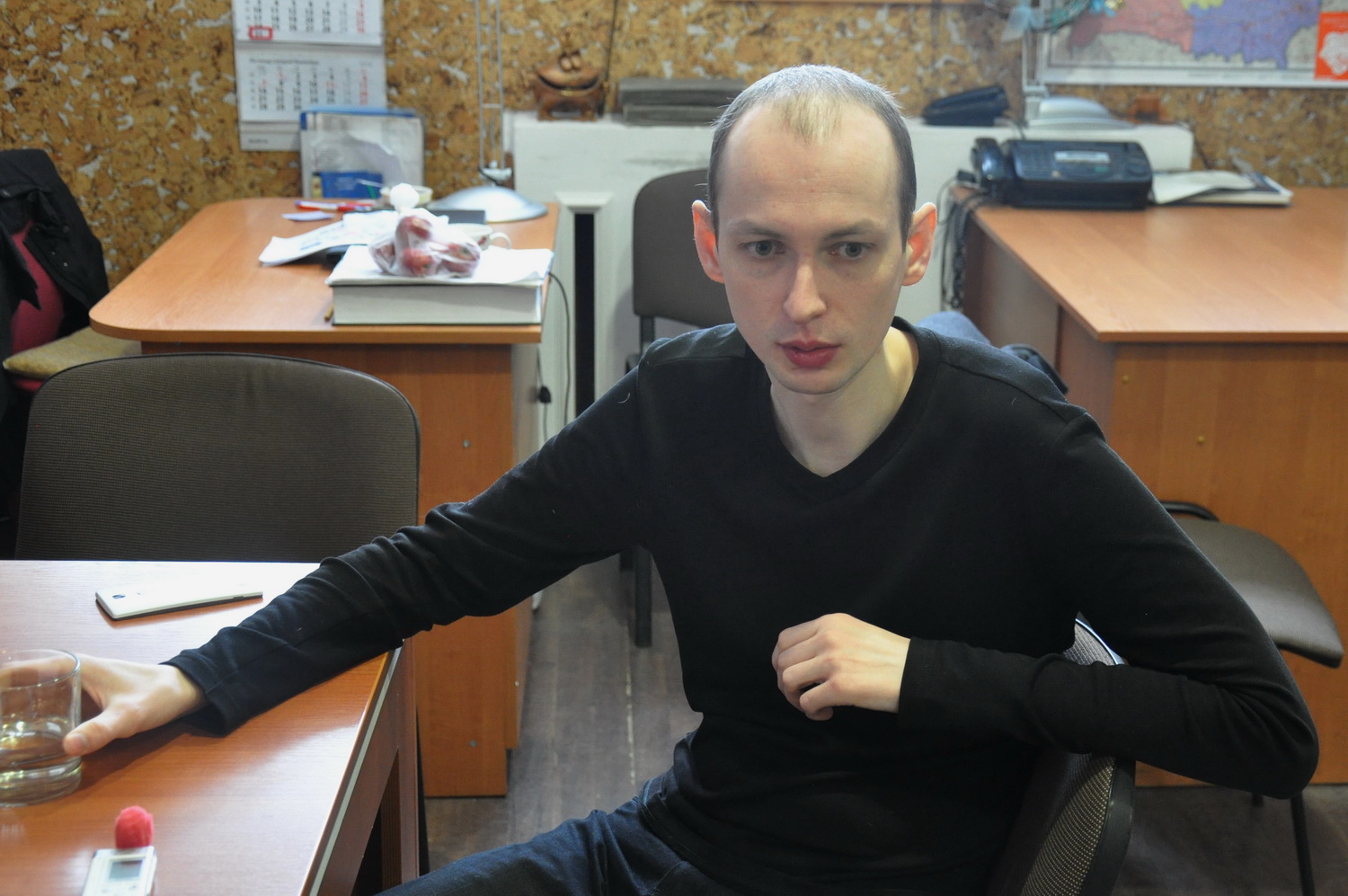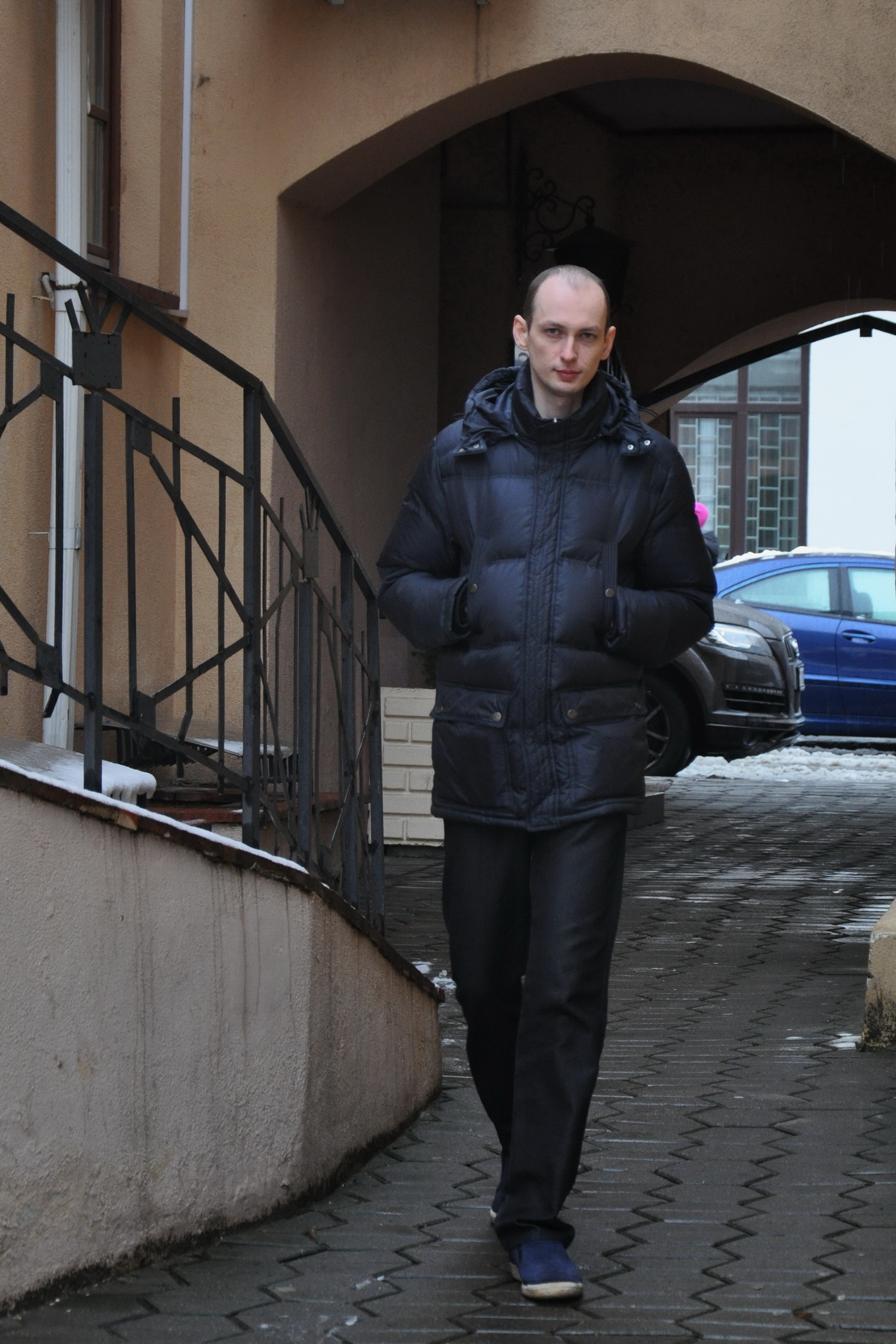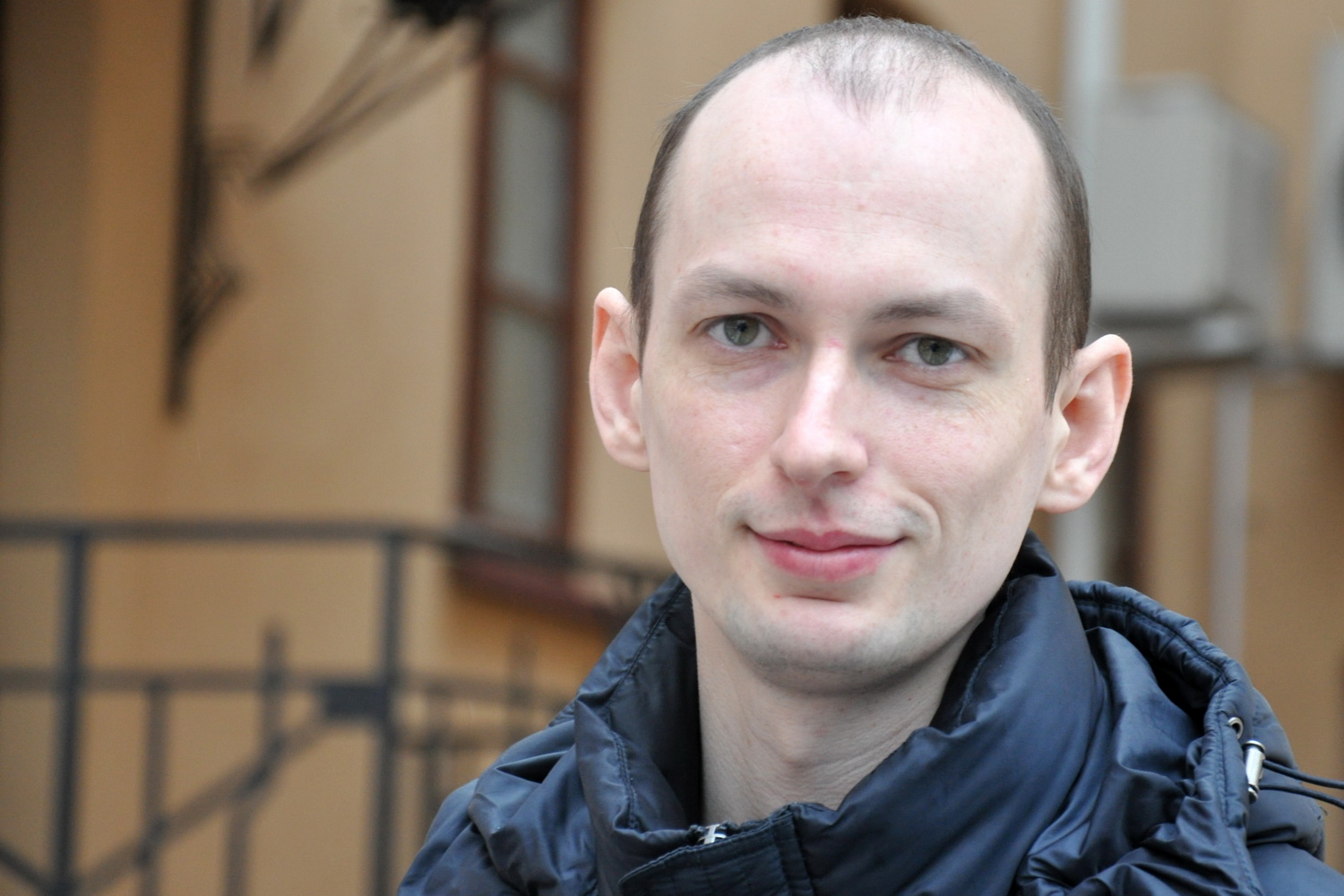John Silver Interview: Informational Isolation is the Hardest
In all interviews, Eduard Palchys says that he hasn’t got used to being a media person after the release. The press service of BAJ asked several questions to the “ordinary man” – about intelligence investigations over Belarusian activists by FSB, depression in detention, Russian-language nationalism and mass media reach in prisons.

“When I arrived in Zhodzina in mid-June and started receiving dozens of letters, I realized I had totally lost my anonymity. Censors were dissatisfied to have lots of letters because they had to read them all. But for detainees there is a grave problem of time-killing. I received lots of letters and I tried to respond to them all, and days went by faster. This is real support for those in informational isolation. This is the toughest, and not the food or confinement conditions.
You can subscribe to anything in Belposhta catalogue. I subscribed to Belgazeta, Nasha Niva, Narodnaya Volya, Narodnaya Gazeta, Belorusy I Rynok, Nasha Slova. SB.Belarus Segodya was brought for free, and I was glad to have even this when there was nothing else. At liberty, you can look through hundreds sources of information, whereas in prison – only newspapers and letters.”
Thanks to such “monitoring” of print mass media, could you tell what they lack?
“Our journalism covers very little business. There are rich persons in detention, and nobody ever needs them once they are there. Business should be keen on independent journalism that would protect from security agencies. They think that now everything is fine and one can make money, so damn those media. But at Valadarka (KGB prison) other things start.
We don’t have media that would write for teenagers in “their language”. That is why they pass time on social nets and get to learn from social and political life from pictures.
I was criticized that my articles were aggressive and with obscene language. But this is exactly the language of this very audience. Several years later, they will become voters, workers, a lot of things will start to depend on them.
I have to create the content that would attract even Russian-speaking audience. When somebody shapes a hero from one’s own environment, that would be a narrow circle, that would be work for closer environment; on the contrary, we need to crosslink audiences. For example, we’ll write an article on politics or history interestingly and in Russian. Meantime, a text in the style “10 best porn starts”, “whom dates Kseniya Sitnik” – in Belarusian. Russian-speaking audience will also read these articles because they are appealing. As a result, the limits of our “ghetto” will be blurring.”
In your opinion, do Belarusian mass media respond adequately to modern-day challenges, and have they taken lesson from the Ukrainian events?
«I think that all Belarusian journalists should learn English and follow Western media. We always take time in the spheres of new tendencies. The explanatory journalism migrated from the US to Europe, then to Russia, and then it’s here. Only now the significance of social nets has been acknowledged. In the West, it became clear yet three years ago that social nets demanded active work.
Now, in order to win readers’ adherence, to compete with the Russian media, one should be up-to-date.
When I started writing about war and military threat in 2014, many Facebook users told me I was inadequate, radical, ultra-fighter. This year in Zhodzina I take a newspaper and see an article something like “How to get ready for war”. Now this issue has earned much more attention, it is not doubted.
But I think again that we still lag behind in this informational war.
We have to make more investigations. For example, when the propagandist Vladimir Solovyov arrives in Minsk. He is a controversial figure, one can explore a lot about him. But we keep relaxed, drink coffee and think: “Well, there is a threat, but not tonight anyway.” If we ignore the event, the Russian mass media will show the right picture: Solovyov arrived to Minsk, gathered the whole hall, etc.
We’ve got to react the same way. Remember the case with Starikov, who initially planned to make a kind of a tour around Belarus, but in the end, humbled in the Moscow House and that was it (Russian ideologist and writer Nikolay Starikov visited Minsk a year ago – note).»
Is it easy to disturb society in Belarus by propaganda instruments?
«If Russian mass propaganda machine sets to do it, that will be very easy. Now they work over Belarus with low budgets. When I was in Bryansk, I watched RenTV and saw many reports with the message like “Lukashenko is a traitor”, “Lukashenka is cunning, he wants to use Russia only as a donor, he does not recognize LNR, DNR etc”. This appeared not on central channels, but still it already exists.
One can say that we are traitors, one can create nationalists, one can sponsor and stage some provocation. The question is that the society, the state, mass media and media personalities have to keep the informational field.»
You had left for Ukraine in autumn 2015, and in January 2016 you were detained in Russia. Why did you get back so fast from Ukraine, what went wrong?
«I’d been thinking of return upon departure. It was not classical emigration. I left also to make people know about what was going on. Here, under pledge of secrecy, I could speak about myself for one more prison term. I did not plan to leave for long. It would be easier to serve 2 – 3 years than wander for 15 years far from Motherland, far from relatives and friends. This is my outlook. I like living here even with all hardships.
When I was Kyiv, I met Pavel Sheremet and the guys from Brutto. Everybody was telling about the wish to return to Belarus. And they all are back, though in a different way.»
You were detained by the Russian Federal Security Service (FSB), but was it done only within the Belarusian criminal case?
«FSB was interested about me and, as far as I understood, about some other people. For example, Andrey Kim (activist, lately has run translation and screening of popular movies in the Belarusian language – note). It looks like there has been an order to counteract to those who are active in the informational sphere. I was on the international wanted list, but in Russia there was also an attempt to get more testimony and start one more case there. I played by telling that everything was not mine and I was a wrong man. They offered to confess and get 2–3 years suspended sentence in Russia, I was threatened that I would get five years in Belarus.»
What impressions do you have about the penitentiary system in Belarus?
«The system is very poor, it lacks money. One should pay attention more to the staff, as some of them are worth being imprisoned for power abuse. It is also important to improve medical aid. When a person feels unwell, he will have large problems. In Zhodzina, you can wait for a month or two to get to the dentist with a toothache. There is aspirin and absorbent carbon for all diseases. It is horrible when a person dies in prison, but, actually, he could have been saved.
I wasn’t beaten and haven’t seen or heard about anything of the kind. As for tortures, I think they are possible only with a direct order from above. But the confinement conditions are close to what can be called tortures. For instance, people live for months without oxygen. Imagine, there are 10–15 people in the cell, and they all smoke. People simply live in the smoke. With time, different diseases develop.
I have more questions regarding inadequate actions of security forces during detentions – there are really very many injured people, they get to intensive care.
The status of political prisoner did not influence anything during the imprisonment. Maybe even the guards were unaware of it. But the status must have influenced the court decision and people’s support.»
Could you tell about moods that detainees have during investigation?
«Somebody is strong psychologically and behave normal, others get depressed. I saw in Russia a man who tried to commit suicide at night by cutting veins.»
Do Belarusian and Russian detention centers differ?
«Food in Belarusian prisons is better. The Department of Execution of Court Sentences really needs bigger budgets, because there are many people. Here, it is easier to get to prison rather than to find a job. But in some prisons in Russia one can have DVD-players, fridges, TV-sets. We have stricter order in this regard.»

Why do you stay aside from the Belarusian opposition?
«The word “opposition” has changed here for years and does not illustrate its initial meaning. I do not keep aside because I have never been linked to political parties or structures. I am an ordinary man. Nobody paid me, unfortunately, no Washington, no the EU. I see wrongness in their way of thinking, irresponsibility. People criticize according to the 20-year old scheme, they have been saying the same for years. A man who wants to get power will act more extensively. In Zhodzina, I read some debates concerning the access of two opposition representatives to parliament. Will it influence the authorities? Or the question of power is still related to national consciousness and security. Of course, it is better to tread the same path “We are getting ready for the next elections”. And 25 years like this. I wish them more creativity.»
The story has added you some good social capital, you are recognizable and authoritative. What are you going to do with this?
«I am reflecting on it. But again I say I am an ordinary man, as well as the people who visited my website. Perhaps, I would want to make some super project, but I don’t have respective resources.»
And what about work, sphere of activities?
«Now I don’t have much choice, I will look for a job related to mass media, information, journalism.»
Has Belarus changed for this time?
«It has, especially judging by TV. Now there is less propaganda and informational trash. There is more national stuff – the Belarusian language, vyshyvanki. I would not tell that the Belarusian TV has become more truthful, but there is no tough propaganda that would offend the ear.»
How difficult is it for relatives to support one detained materially?
«I did not ask the exact sums; including the parcels, the lawyers, it makes around an average salary a month. But it can be even much more, up to several thousand dollars for lawyers’ service only.»

Eduard Palchys was found guilty of inciting racial, national, religious, or other hatred according to art. 130, part 1 of the Criminal Code, and also of production and distribution of pornography materials (art. 343 of the Criminal Code).
Before the sentence comes into legal force, Eduard Palchys stays under travel ban.
Belarusian human rights defenders consider him a political prisoner and his case politically motivated.
 @bajmedia
@bajmedia
